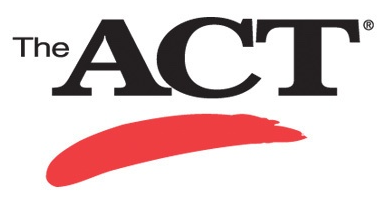
If you've found this article, you've probably vaguely heard of the ACT (and if you hadn't before, well, you have now!). Maybe you have some idea that it has something to do with college, but you're still pretty confused about what exactly it is. I'm here to help!
The ACT, like the SAT, is a standardized test used for college admissions. If you're planning to apply to college in the US, you'll almost certainly have to take one of these tests (and you might still need to even if you're planning on going to school outside the US).
This article will take you through everything you need to know about the ACT, including why students take it, what it tests you on, and when you should plan to take it yourself.
Why Do People Take the ACT?
The ACT is a standardized test designed to show colleges how prepared you are for higher education by measuring your reading comprehension, knowledge of writing conventions, and computational skills, and then comparing you to the rest of the high school students who take it.
The exam essentially serves as a nationwide college admissions test (though it's far from the only factor schools consider when looking to admit students).
Most four-year schools require applicants to submit either ACT or SAT scores (they don't distinguish between the two), which can then make up as much as 50% of the admission decision. A strong standardized test score is a key part of your application.
There are also a lot of students who are required to take the ACT by their high school. A number of states use the ACT as a statewide assessment test, so every junior at a public school takes the ACT.
Which Schools Accept the ACT?
There's a common misconception that some colleges only accept SAT scores and won't take ACT scores. This is not the case: all four-year colleges and universities in the US accept ACT scores, and the schools don't distinguish between the two tests. You can take whichever you prefer.
However, many schools these days, including George Washington University, Hampshire College, and the California State University system, either don't require ACT/SAT scores or have flexible policies on standardized tests.
If you're an international student looking to attend a US school, you'll need to take either the ACT or SAT. If you're an American student planning to apply to international schools, you will probably still need to take one of these standardized tests, but it will depend on the school you're applying to and which country it's in.
Two-year colleges and trade schools generally don't require applicants to take the ACT but will sometimes accept it in lieu of a placement test.
 MIT, one of the many colleges that requires an ACT score.
MIT, one of the many colleges that requires an ACT score.
What Does the ACT Cover?
The ACT consists of four sections—English, Math, Reading, and Science—plus an optional Writing section, or essay. With the exception of the essay, the test is entirely multiple choice: the Math questions each have five answer choices, while the rest have four.
This chart quantifies the basic structure of the test. For more details on what's actually on the ACT, you can follow the links to full breakdowns of each section.
| Order | ACT Section | # of Questions | Time | Time per Question |
| 1 | English | 75 questions | 45 minutes | 36 seconds |
| 2 | Math | 60 questions | 60 minutes | 60 seconds |
| 3 | Reading | 40 questions | 35 minutes | 52 seconds |
| 4 | Science | 40 questions | 35 minutes | 52 seconds |
| 5 | Writing (optional) | 1 prompt | 40 minutes | 40 minutes |
| — | TOTAL | 215 + 1 prompt | 3 hrs 35 mins (2 hrs 55 mins w/out essay) | — |
How Is the ACT Scored?
ACT scores can feel arbitrary, so let's break down where that mysterious number between 1 and 36 actually comes from.
For each section of the test, you'll get a raw score, which is the number of questions you get right. That is then converted into a scaled score between 1 and 36. The composite score is simply the average of your four ACT section scores (the Writing score is left out because it's optional).
Currently, the average ACT score hovers around 21, though there's some variance from year to year.
While it's easy to fixate on trying to get as high a score as possible, most students don't need to get a 36. Instead, you should determine what a good score is for the colleges (and scholarships) you're planning to apply to. For top-tier, highly selective schools, you'll likely need at least a 33-34, but for less selective public universities, you could very well get in with a score closer to the average.
When Should You Take the ACT?
When you take the ACT will depend on what kind of score you want to get, when your application deadlines are, and whether you live in one of the states that requires the ACT.
Generally speaking, though, it's ideal to take the ACT for the first time in the fall or winter of your junior year, when you've covered most of the material in school but still have time to retake the test if needed.
Check out our guide to see a list of upcoming ACT test dates and get tips on choosing one.
 We're just getting started! Time to make a plan.
We're just getting started! Time to make a plan.
Everything You Need to Plan for the ACT
Having read this post, you hopefully feel a bit more clear about what the ACT is. But the tricky part is still to come: preparing for the test. I've compiled a list of essential questions you should ask yourself as you begin to plan for college applications.
Should I Take the ACT or SAT?
This question concerns a lot of students, but it's not as important as it seems, since most students don't see that much of a difference between their scores on the two tests. Nowadays, the SAT is very similar to the ACT in terms of overall structure and content.
If you're not sure which test to take, try using our fool-proof method to determine whether the ACT or SAT is better for you. You can also take our quiz on deciding between the SAT and ACT or get the rundown of all the major differences between the two exams.
Also, keep in mind that if you'll be taking the ACT in school anyway, it'll be simpler to stick with that test, since you might have some prep lessons in class and it will save you money on registration.
What ACT Score Do I Need to Get Into College?
Your ACT goal score will depend on which colleges you're applying to. Use this form to calculate your ideal ACT score.
What's the Best Way to Prepare for the ACT?
As you prepare for the ACT, you'll need to decide whether you want to hire a tutor or study on your own. You might also want to consider ACT classes or an online prep program like PrepScholar!
If you decide to study on your own, make sure to come up with a study plan, get the best ACT prep books for your needs, and take plenty of official ACT practice tests. We also recommend looking at our ultimate ACT study guide to help you plan out your study schedule and get the resources you'll need.
What Do I Need to Know to Prepare for the ACT?
There are three key pieces to preparing for the ACT:
- Understanding how the test works
- Reviewing the material
- Practicing
To learn how to think effectively about the ACT, download our guide to the five strategies you must use.
For specifics on content and question types, try our complete guides to each section of the test: English, Math, Reading, Science, and Writing.
You can find the best ACT practice tests here and an in-depth guide on how to use them here.
What's Next?
Not sure where to get started on your ACT prep? Our free ultimate ACT study guide offers you step-by-step advice on what to read and when in your ACT prep.
Looking for supplemental ACT resources to use in your studying? Then check out these great ACT websites and ACT prep apps.
Aiming high on the ACT? Get expert tips on how to ace the exam with our comprehensive guide to getting a 36—written by a real full scorer!











